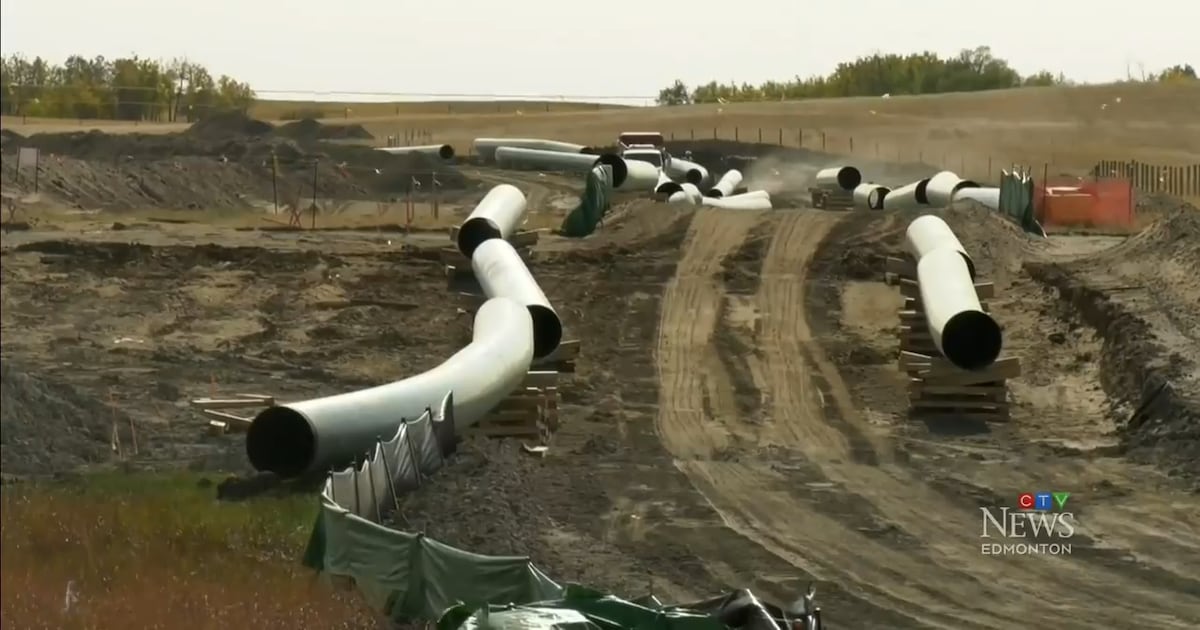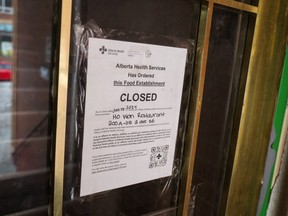Top Stories
Keystone XL Pipeline Revival Talks Heat Up Amid Tariff Negotiations

URGENT UPDATE: Discussions surrounding the controversial Keystone XL pipeline are intensifying, following a meeting between Canadian Prime Minister Mark Carney and former U.S. President Donald Trump earlier this week. The two leaders reportedly discussed the possibility of reviving the pipeline to facilitate a deal on U.S. tariffs affecting Canadian steel and aluminum.
The Keystone XL pipeline, which has faced shutdowns and cancellations since its inception over a decade ago, was designed to transport crude oil from Alberta to refineries on the U.S. Gulf Coast. It was initially halted by the Obama administration in 2015, revived by Trump in 2017, and then canceled again by President Biden on his first day in office in 2021.
Despite skepticism among industry experts, some are optimistic about a potential restart. Political commentator Scott Reid stated, “Third time could definitely be the charm.” He emphasized that a revival could not only benefit the oil sector but also improve Canada-U.S. relations.
Industry analysts are cautious but open to discussions. Richard Masson, an executive fellow at the University of Calgary, remarked, “If we can use it to our advantage in a discussion with the U.S., I think that’s a good thing.” However, Masson pointed out significant hurdles, especially financial risks, stating that guarantees from Washington would be crucial. The cancellation in 2021 resulted in billions in losses for both the Alberta government and TC Energy, the project’s operating company.
Experts believe the economic case for Keystone XL remains strong. Former TC Energy executive Dennis McConaghy noted that Canada could potentially increase its oil sands production by up to 1 million barrels a day. However, he cautioned that this boost would necessitate major adjustments to Canada’s climate policies, a sentiment echoed by Andrew Leach from the University of Alberta. Leach questioned whether Alberta’s industry could assure the Prime Minister that the project would not jeopardize Canada’s climate goals.
As discussions progress, the revival of the Keystone XL expansion is also likely to face criticism for deepening Canada’s reliance on U.S. markets. Ottawa has recently indicated a desire to diversify its trading relationships, raising questions about the long-term strategy.
In the coming days, observers will closely monitor whether any concrete agreements emerge from these high-level talks. With the stakes high for both nations, the potential revival of the Keystone XL pipeline could significantly impact the North American energy landscape, as well as environmental policy discussions.
Stay tuned for further developments as this situation evolves.
-

 Politics4 weeks ago
Politics4 weeks agoSecwepemc First Nation Seeks Aboriginal Title Over Kamloops Area
-

 World5 months ago
World5 months agoScientists Unearth Ancient Antarctic Ice to Unlock Climate Secrets
-

 Entertainment5 months ago
Entertainment5 months agoTrump and McCormick to Announce $70 Billion Energy Investments
-

 Science5 months ago
Science5 months agoFour Astronauts Return to Earth After International Space Station Mission
-

 Lifestyle5 months ago
Lifestyle5 months agoTransLink Launches Food Truck Program to Boost Revenue in Vancouver
-

 Technology3 months ago
Technology3 months agoApple Notes Enhances Functionality with Markdown Support in macOS 26
-

 Lifestyle3 months ago
Lifestyle3 months agoManitoba’s Burger Champion Shines Again Amid Dining Innovations
-

 Top Stories2 months ago
Top Stories2 months agoUrgent Update: Fatal Crash on Highway 99 Claims Life of Pitt Meadows Man
-

 Politics4 months ago
Politics4 months agoUkrainian Tennis Star Elina Svitolina Faces Death Threats Online
-

 Sports5 months ago
Sports5 months agoSearch Underway for Missing Hunter Amid Hokkaido Bear Emergency
-

 Politics5 months ago
Politics5 months agoCarney Engages First Nations Leaders at Development Law Summit
-

 Technology5 months ago
Technology5 months agoFrosthaven Launches Early Access on July 31, 2025





















